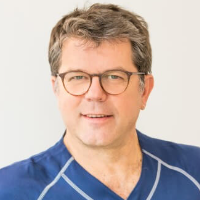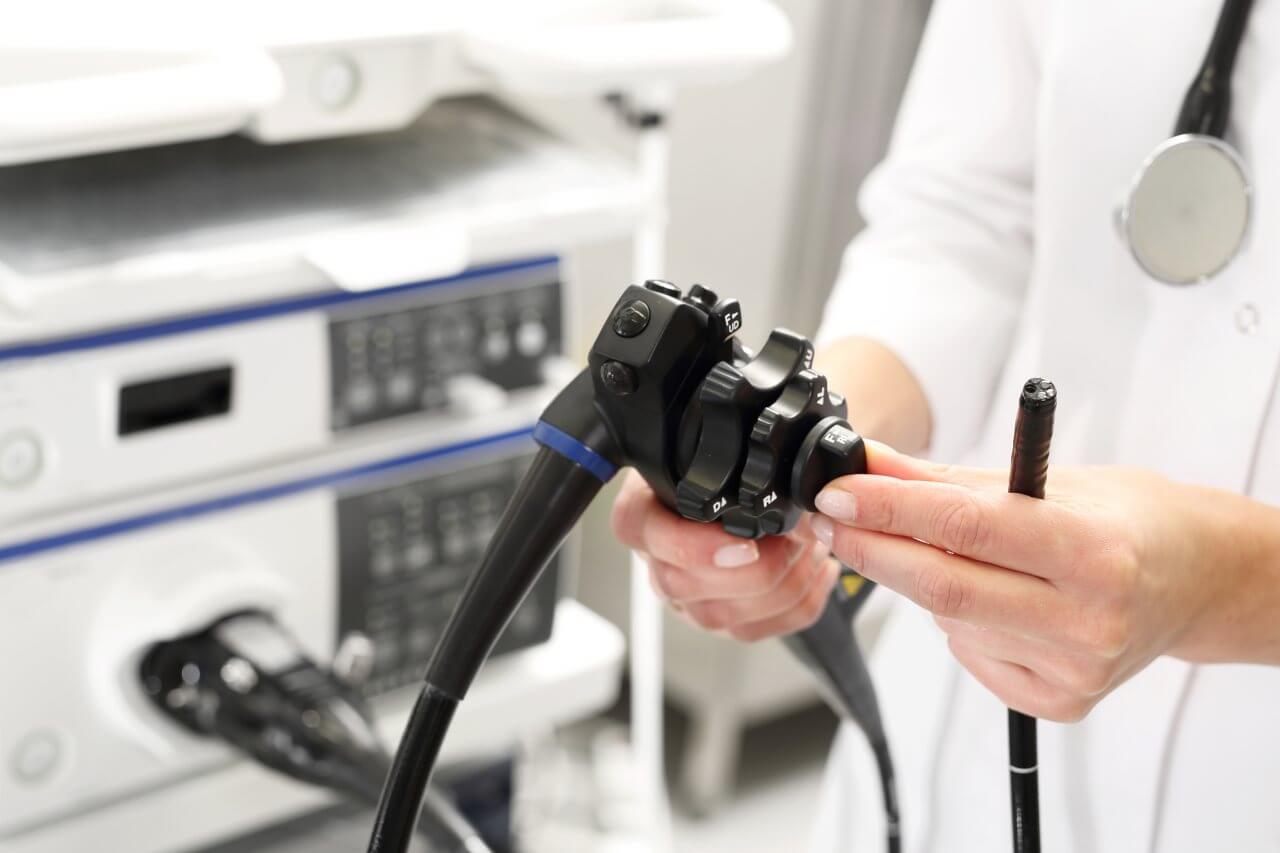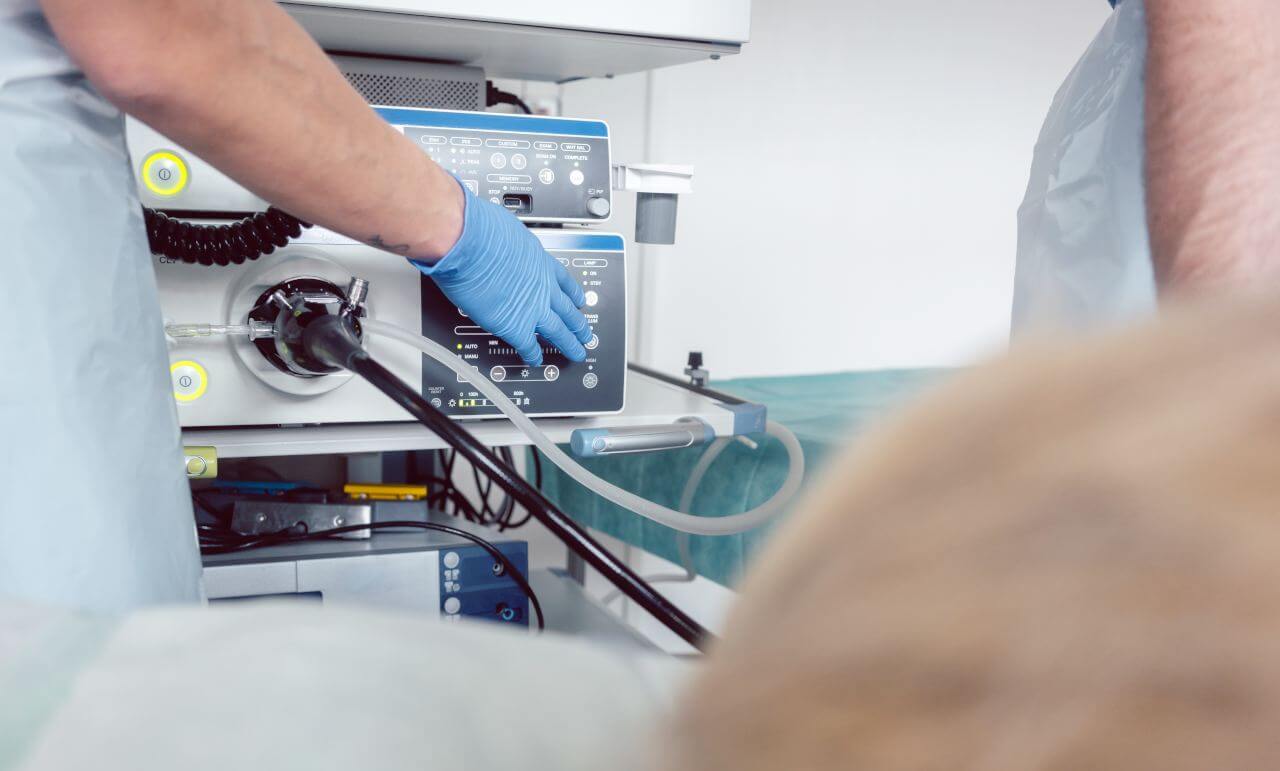
The program includes:
- Initial presentation in the clinic
- clinical history taking
- review of medical records
- physical examination
- laboratory tests:
- complete blood count
- biochemical blood test
- tumor markers (CEA, CA19-9, AFP)
- inflammation markers (CRP, ESR)
- blood coagulation analysis (aPTT, PT, INR)
- irrigoscopy
- rectoscopy (static, dynamic)
- ultrasound of the abdomen
- CT of the abdomen
- neurophysiology:
- needle EMG of n.Pudendus
- nursing services
- services of all leading experts
- explanation of individual treatment plan
Required documents
- Medical records
- Endoanal ultrasound (if available)
Service
You may also book:
 BookingHealth Price from:
BookingHealth Price from:
About the department
The Department of Gastroenterology, Hepatology and Proctology at the Gastroenterology Clinic Dr. med. Christof Pfundstein Munich offers all the options of modern medicine in the areas of its specialization. The medical facility provides diagnostics and treatment for patients with diseases of the stomach, small and large intestines, esophagus, rectum, pancreas, liver, gallbladder, and biliary tract. During the initial appointment, the attending physician carefully listens to the patient's complaints, studies his anamnesis, and prescribes the necessary complex of examinations. In most cases, the diagnostic scheme includes laboratory tests, functional gastrointestinal tests, and endoscopic procedures. After the establishment of a diagnosis, the optimal treatment strategy is selected. The department's specialists have excellent professional skills in therapeutic endoscopic procedures, which today are the gold treatment standard in gastroenterology. Medical care in the department complies with DIN EN ISO 9001:2015 standards. The department is headed by Dr. med. Christof Pfundstein.
The department regularly admits patients with stomach diseases. The most common pathologies include stomach ulcers, functional disorders, and benign and malignant stomach neoplasms. If these diseases are suspected, a patient undergoes laboratory diagnostics and functional tests, and a gastroscopy, an endoscopic examination, is often required. A gastroscopy allows doctors to examine the upper gastrointestinal tract: the stomach, esophagus, and part of the duodenum. Whenever required, tissues may be taken for a further histological examination, namely a biopsy. The essence of the procedure is the insertion of a special device (a gastroscope) into the stomach through the oral cavity. Images at various zoom levels are displayed on the screen, allowing a doctor to easily detect pathological changes. The insertion of a gastroscope usually causes a strong gag reflex, so sedation is performed before the manipulation, due to which a patient sleeps and does not feel any pain or discomfort. The duration of a gastroscopy usually does not exceed 20-30 minutes. It should be noted that a gastroscopy is carried out not only for diagnosis but also for therapeutic purposes. For example, the department's doctors often use this procedure to remove benign and malignant neoplasms (in the early stages), arrest gastrointestinal bleeding, etc.
Colon diseases are common in the department's clinical practice, so the necessary resources are available to provide medical care to patients with such pathologies. A colonoscopy is an indispensable diagnostic method for suspected bowel disease. This endoscopic procedure allows the department's gastroenterologists to detect colon cancer (one of the most common and life-threatening types of oncology) at an early stage and remove the malignant tumor without resorting to traumatic, invasive interventions. The principle of a colonoscopy is similar to that of a gastroscopy: a special thin tube with an attached tiny video camera is inserted into the lower gastrointestinal tract through the anus to examine it. The procedure also takes about 30 minutes and is performed under anesthesia. A colonoscopy is indicated for patients with suspected benign or malignant colon tumors, inflammatory processes in the colon, etc. The procedure can be performed for both diagnostic and therapeutic purposes.
The department offers a capsule endoscopy, which is an excellent alternative to a classical colonoscopy. It can also be performed in addition to a colonoscopy in complex clinical cases. During the examination, a patient swallows a special capsule with one or two tiny cameras that display images of the inner surface of the intestine in multiple zooms on the screen. The main advantage of a capsule endoscopy is that the patient does not need to be sedated and remains conscious during the procedure. A capsule endoscopy is a highly informative diagnostic method since it gives the doctor the opportunity to examine hard-to-reach areas of the intestine that cannot be visualized with a colonoscopy. However, the technique also has a drawback because it can only be used for diagnostic purposes, depriving the doctor of the opportunity to sample suspicious tissues or remove a pathological focus, for example, a polyp.
Doctors at the medical facility have all of the necessary equipment to perform a capsule endoscopy with a special Bravo capsule on patients suffering from symptoms such as heartburn, difficulty swallowing, esophageal pain, and so on. The department's gastroenterologists recommend this procedure to patients with the above-mentioned symptoms, which do not improve with drug therapy. During the procedure, the esophageal pH is simultaneously determined.
The department specializes in the diagnostics and treatment of the following diseases:
- Gastroenterology
- Stomach diseases
- Stomach ulcer
- Functional gastrointestinal disorders
- Stomach cancer
- Esophageal diseases
- Gastroesophageal reflux disease
- Esophageal cancer
- Small intestine diseases
- Small bowel ulcer
- Small bowel diverticula
- Small bowel polyps
- Vascular malformations of the small intestine
- Large intestine diseases
- Colon polyps
- Colon cancer
- Diverticular colon disease
- Colon inflammation (colitis)
- Functional colon disorders
- Pancreatic diseases
- Acute and chronic pancreatitis
- Pancreatic cancer
- Stomach diseases
- Hepatology
- Liver diseases
- Hepatitis
- Cirrhosis
- Alcoholic and toxic liver lesions
- Benign and malignant liver tumors
- Gallbladder and biliary tract diseases
- Gallstone disease
- Cholecystitis
- Cholangitis
- Bile duct obstruction
- Benign and malignant neoplasms
- Liver diseases
- Proctology
- Diseases of the rectum, other parts of the colon and anus
- Haemorrhoids
- Anal fissures
- Anal fistulas
- Anal eczema
- Anal warts
- Anal cancer
- Diseases of the rectum, other parts of the colon and anus
- Other diseases
The department's range of diagnostic and therapeutic services includes the following options:
- Diagnostic services
- Laboratory tests
- Blood tests
- Urine tests
- Stool tests
- Ultrasound scans
- Gastrointestinal functional diagnostics
- 13C urea breath test
- Hydrogen breath test
- Endoscopic examinations
- Gastroscopy
- Colonoscopy
- Rectoscopy
- Capsule endoscopy, including with the use of a special Bravo capsule
- Laboratory tests
- Therapeutic services
- Drug therapy
- Gastroscopic interventions
- Colonoscopic interventions
- Proctoscopic interventions
- Other diagnostic and treatment methods
Curriculum vitae
Higher Education and Professional Career
- 1989 - 1996 Human medicine studies, Ludwig Maximilian University of Munich.
- 1996 - 2000 Clinical Training in Internal Medicine: Wasserburg am Inn Clinic, Muehldorf am Inn Clinic, and Dr. Michael Schreiber Clinic in Munich.
- Since 2000 Regular work as an Emergency Physician in the cities of Upper Bavaria.
- 2001 - 2003 Advanced training in Internal Medicine and Gastroenterology, Dr. Burlefinger Gastroenterology Private Practice in Munich.
- 2004 Emergency Physician at the Wasserburg am Inn and Haag Clinics, and Internist at Dr. Burlefinger Gastroenterology Private Practice in Munich.
- 2004 Board certification in Internal Medicine.
- 2005 - 2007 Physician in the Department of Internal Medicine, Intensive Care and Dietology, Starnberg Hospital.
- 2007 - 2008 Physician in the Department of Internal Medicine and Gastroenterology (focus on endoscopy and ultrasound scans).
- 2008 Specialization in Gastroenterology.
- 2008 - 2011 Internist and Gastroenterologist, Dr. Albert Eimiller Private Practice in Munich.
- Since May 2011 Gastroenterologist at Arabella Hospital.
- 2011 - 2013 Study of Business Administration in Healthcare at the University of Erlangen-Nuremberg.
- 6 May 2013 Opening of the Gastroenterology Clinic Dr. med. Christof Pfundstein Munich..
- August 2013 Master of Health Business Administration (MHBA), University of Erlangen-Nuremberg.
Photo of the doctor: (c) Gastroenterologie München Bogenhausen Dr. med. Christof Pfundstein & Kolleglnnen
About hospital
The Gastroenterology Clinic Dr. med. Christof Pfundstein Munich positions itself as a modern, highly specialized medical facility for the prevention, diagnostics, and treatment of gastrointestinal diseases. The clinic is a private practice headed by Dr. med. Christof Pfundstein, who is board-certified in gastroenterology and has additional qualifications in diet therapy.
The highly professional team of doctors at the clinic admits patients with diseases of the stomach, small and large intestines, esophagus, rectum, pancreas, liver, gallbladder, and biliary tract. A special focus of the healthcare professionals at the medical facility is the performance of endoscopic examinations and therapeutic procedures on an outpatient basis. Advanced equipment and the vast experience of doctors contribute to the provision of effective medical care in a pleasant environment for patients.
Modern treatment rooms at the clinic are designed for comprehensive diagnostics of the digestive system, including laboratory tests, ultrasound scans, gastrointestinal function testing, and endoscopic procedures. The most popular endoscopic examinations include a gastroscopy, a colonoscopy, a rectoscopy, and a capsule endoscopy. All examinations are performed under sterile conditions and with strict adherence to standards. In addition, doctors make sure that patients do not experience pain or discomfort during diagnostic procedures.
The specialists at the clinic are deservedly proud of their success in treating gastrointestinal diseases. Based on the results of an individual consultation and the diagnostics performed, the attending physician prescribes the optimal course of treatment. Whenever possible, doctors conduct only drug therapy, but quite often endoscopic treatment is also indicated for patients. As a rule, therapeutic manipulations are performed immediately during an endoscopic examination.
The clinic is certified in accordance with DIN EN ISO 9001:2015 standards and is awarded the "Aktion sichere Praxis" quality certificate. The medical facility is part of the Competence Center Network for Bowel Diseases (Kompetenznetz Darmerkrankungen).
Photo: (с) depositphotos
Accommodation in hospital
Hotel
You may stay at the hotel of your choice during the outpatient program. Our managers will support you for selecting the best option.




